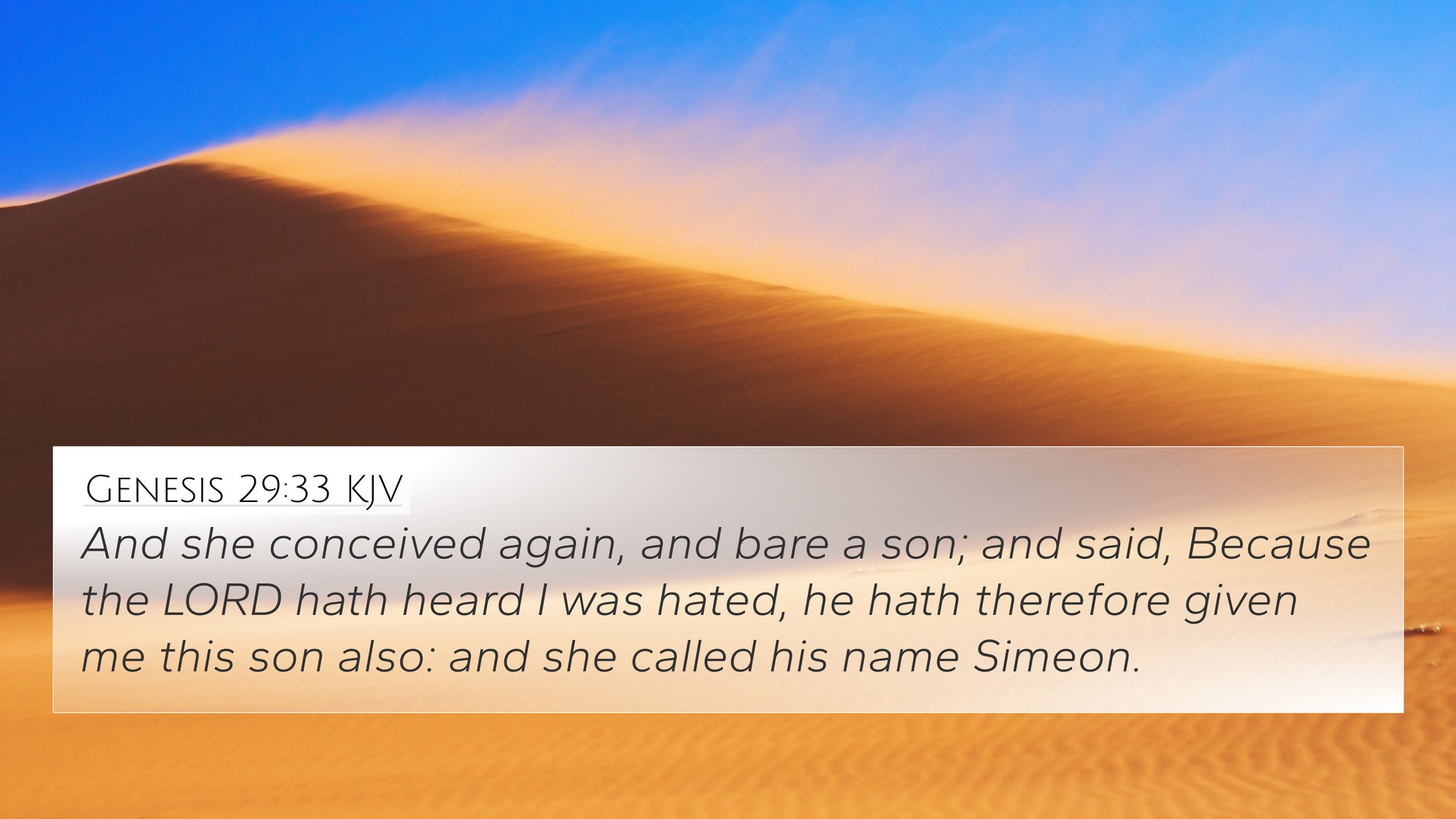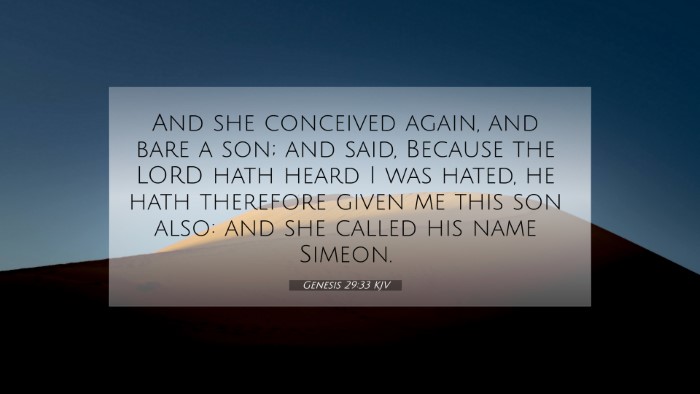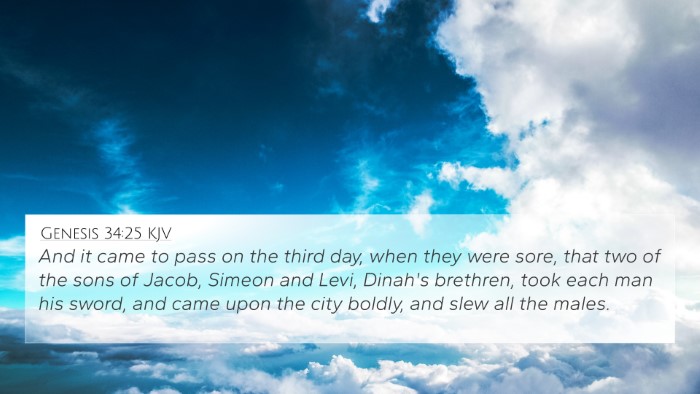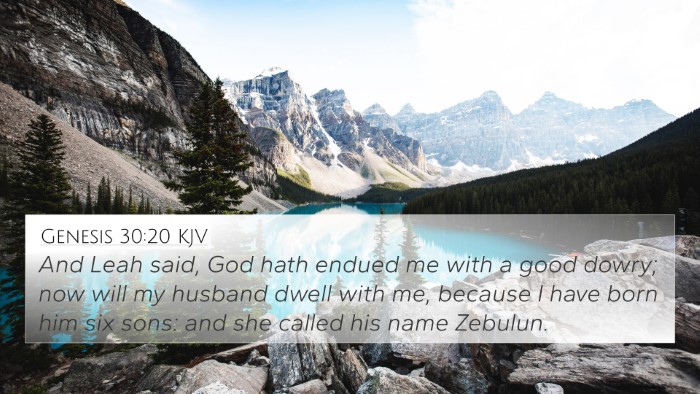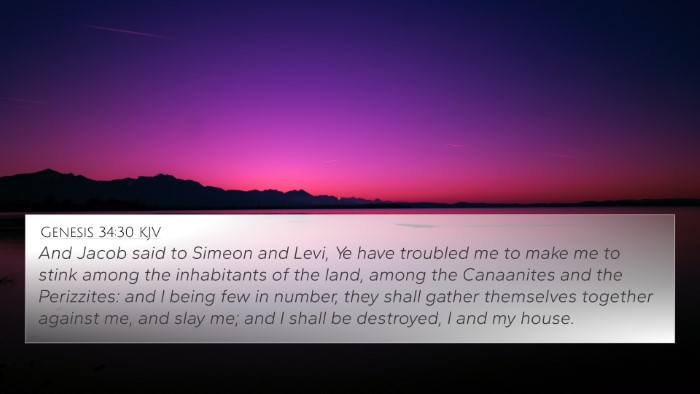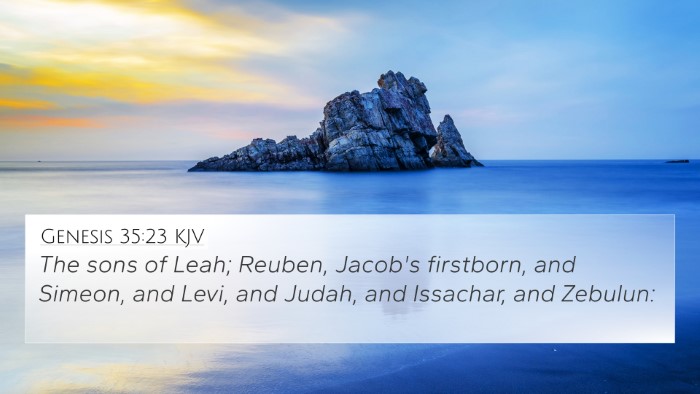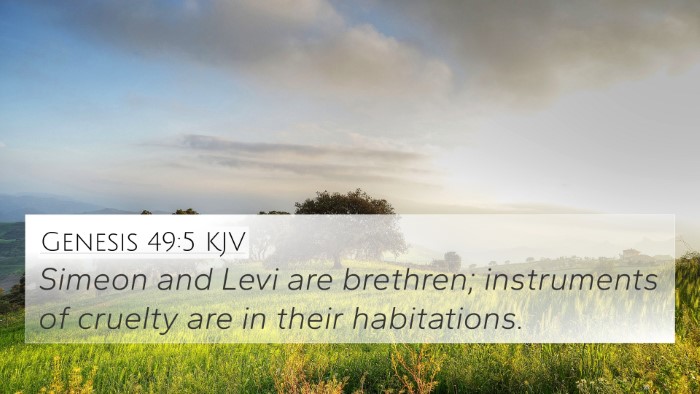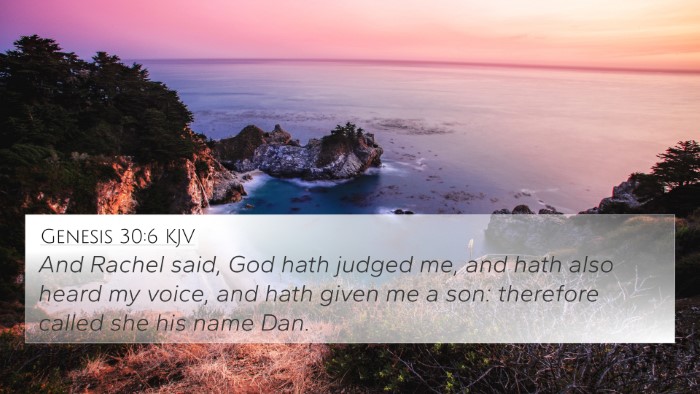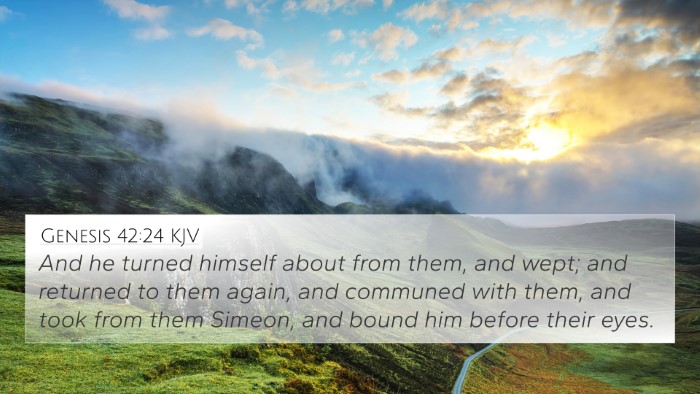Understanding Genesis 29:33
Genesis 29:33 states: "And she conceived again, and bare a son; and said, Because the LORD hath heard that I was hated, he hath therefore given me this son also: and she called his name Simeon." This verse represents a significant moment in the life of Leah, Jacob's first wife, and provides insights into the themes of divine favor, human emotions, and the relational dynamics within the patriarchal family of Israel.
Meaning and Interpretation
The commentary on this verse emphasizes several important themes, combining insights from Matthew Henry, Albert Barnes, and Adam Clarke:
-
The Context of Leah's Struggles:
Leah felt unloved and rejected by her husband Jacob, who loved her sister Rachel more. This emotional pain is reflected in her naming of her children, which serves as a direct expression of her feelings.
-
The Significance of the Name "Simeon":
The name Simeon, which means "hearing," signifies Leah's belief that God has heard her plight. This reflects a broader biblical theme where names are deeply significant and often reveal something about the circumstances of their bearers.
-
Divine Intervention:
According to the commentaries, Leah's conception is viewed as an act of divine intervention, highlighting God's awareness of human suffering and His willingness to respond to those who are marginalized or overlooked.
-
Emotional and Spiritual Lessons:
Leah's feelings of hatred and bitterness contrast with her faith in God's providence. This teaches about the complexities of human emotions and the necessity of recognizing divine presence in our trials.
-
Familial Competition:
The rivalry between Leah and Rachel underlines the themes of competition and jealousy prevalent throughout Genesis. This dynamic prompts reflections on familial relationships and their impact on individual identities.
-
God's Faithfulness:
Even in her lowly state, Leah recognizes God's attentiveness, illustrating that God's faithfulness exists alongside human afflictions. It promotes a deeper exploration of how God meets the needs of His people.
-
Theological Insights:
This verse opens the gateway to discussions of God’s character as a compassionate listener, emphasizing His role as a supporter of the oppressed, echoing the sentiments found throughout the Scriptures.
Cross References
This part of Leah’s narrative aligns with numerous cross-references throughout the Bible, allowing for deeper thematic connections:
- Genesis 29:31 - God’s awareness of Leah’s plight.
- Genesis 30:1-2 - Rachel's jealousy and the struggles of sibling rivalry.
- 1 Samuel 1:20 - Hannah’s story reflects a similar divine hearing of prayer.
- Psalm 34:15 - The Lord’s attention to the cries of the righteous.
- Proverbs 15:29 - The idea that the Lord is far from the wicked but hears the prayer of the righteous.
- Isaiah 41:10 - Assurance that God supports those who are in distress.
- Luke 1:25 - Elizabeth's response to God’s favor in her life, akin to Leah's acknowledgment.
- Romans 8:28 - God’s ability to work all things for good, pertinent to Leah’s story.
- James 1:12 - The blessedness of enduring trials, akin to Leah's faith amid struggle.
- 1 Peter 5:7 - Casting all anxiety on Him, reflective of Leah’s reliance on God.
Conclusion
The insights from Genesis 29:33 reveal profound themes about the human condition, God's responsive nature, and the intricacies of familial relationships. The cultivation of a deeper understanding of this verse highlights the importance of exploring connections between Bible verses, as it enriches our comprehension of biblical narratives. Utilizing tools for Bible cross-referencing enhances our ability to engage with the text and draws a comprehensive picture of God's work in history.
Emphasis on Cross-Referencing
Engaging in cross-referencing Bible study allows believers to identify connections between the Old and New Testament, and to explore how specific themes resonate throughout Scripture. Tools for cross-referencing deepen thematic Bible verse connections and offer a structured approach for readers seeking to uncover the layers of biblical meaning.
A bible concordance or a dedicated bible cross-reference guide can be invaluable resources for readers wanting to study cross-referenced themes in the Bible or preparing for sermon lessons utilizing bible cross-references.
